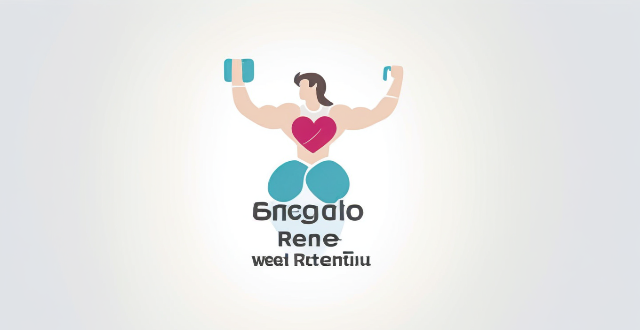Cognitive Aerobic

Is there a specific type of exercise that is most effective for enhancing cognitive abilities ?
Exercise has been shown to have numerous benefits on cognitive abilities, but is there a specific type of exercise that is most effective? Aerobic exercise improves blood flow and reduces stress, while resistance training boosts BDNF levels and enhances executive function. Combination exercises provide a comprehensive workout for the body and brain. Finding an exercise routine that you enjoy and can stick to is key to reaping the cognitive benefits over time.

What are the benefits of aerobic exercise ?
Aerobic exercise, also known as "cardio," is a form of physical activity that increases your heart and breathing rate. It's any activity that keeps large muscles moving in a rhythmic manner for an extended period of time. Some examples include brisk walking, jogging, swimming, cycling, and dancing. The key benefits of aerobic exercise include improved heart health, weight management, boosted immune system, improved lung function, reduced stress, improved sleep, boosted mood, increased brain volume, slowed age-related cognitive decline, improved stamina, enhanced bone health, and promoted longevity. Incorporating aerobic exercise into your lifestyle can greatly improve your quality of life.

What role does exercise play in maintaining cognitive function in old age ?
Exercise is crucial for maintaining cognitive function in old age, with benefits including improved blood flow, reduced inflammation, and increased neuroplasticity. Aerobic exercise, resistance training, and activities like yoga and tai chi are all beneficial. Incorporating physical activity into your daily routine can help keep your mind sharp as you age.

Can regular exercise prevent cognitive decline in older adults ?
Regular exercise may help prevent cognitive decline in older adults by promoting neuroplasticity, improving blood flow to the brain, and reducing inflammation. Multiple studies have found positive associations between physical activity and cognitive function in this age group. Guidelines recommend aerobic exercise, resistance training, and activities that improve flexibility and balance. Making exercise a regular part of daily life is key for maintaining cognitive benefits over time.

Is there a relationship between exercise and cognitive function ?
Exercise is a potential intervention for enhancing cognitive function across the lifespan. The relationship between exercise and cognitive function is complex and multifaceted, involving various aspects of cognition and different types of exercise. Long-term exercise interventions have consistently shown positive effects on cognitive function, particularly in older adults. Different types of exercise may influence specific cognitive functions differently, and the underlying mechanisms behind these effects are still being explored. By incorporating regular physical activity into our daily routines, we can potentially enhance our cognitive function and overall well-being.

Does exercise have different effects on cognitive function at different ages ?
This article explores the relationship between exercise and cognitive function across various age groups. It highlights the benefits of exercise for children's cognitive development, adults' reduced risk of cognitive decline, and older adults' slowed cognitive decline. Examples of suitable exercises for each age group are provided, including playing sports for children, aerobic activities for adults, and walking or cycling for older adults. The article concludes that incorporating physical activity into daily routines at any age is crucial for maintaining cognitive health and overall well-being.

How often should seniors engage in aerobic activities for heart health ?
Engaging in regular aerobic activities is crucial for seniors to maintain heart health and overall well-being. The American Heart Association recommends at least 150 minutes of moderate-intensity or 75 minutes of vigorous-intensity aerobic activity per week, spread throughout the week. For seniors, this could include brisk walking, swimming, or biking for at least 30 minutes five days a week (moderate intensity) or running and fast cycling for at least 25 minutes three days a week (vigorous intensity), depending on their capability and medical restrictions. Regular aerobic activity offers numerous benefits for seniors, including improved cardiovascular fitness, better blood pressure and cholesterol levels, weight management, increased muscular strength and endurance, and boosted mental health. However, safety precautions should be taken, such as consulting with a healthcare provider before starting an exercise program, starting slowly, choosing low-impact exercises, staying hydrated, wearing appropriate clothing and footwear, and monitoring bodily responses to the activity. By following these guidelines and taking necessary precautions, seniors can significantly improve their quality of life and maintain their independence longer.

Can exercise reverse cognitive impairment caused by neurological disorders ?
Exercise may help reverse cognitive impairment caused by neurological disorders. Studies have shown that exercise can improve cognitive function in people with Alzheimer's disease, Parkinson's disease, and stroke. Exercise may also reduce inflammation, improve balance and mobility, and increase overall quality of life for people with neurological disorders. More research is needed to fully understand the effects of exercise on cognitive impairment caused by neurological disorders.

How does exercise influence neuroplasticity and cognitive function ?
Exercise has a positive impact on neuroplasticity and cognitive function by increasing blood flow, releasing growth factors, reducing inflammation, improving attention and concentration, enhancing memory, and slowing cognitive decline. Incorporating regular physical activity into your lifestyle can have numerous benefits for your brain health and overall well-being.

Can aerobic exercise improve my cardiovascular health ?
Aerobic exercise is essential for maintaining and improving cardiovascular health, offering benefits such as strengthened heart muscle, lowered blood pressure, increased HDL cholesterol, reduced inflammation, weight management, improved circulation, and better blood sugar regulation. Regular aerobic activities like walking, jogging, cycling, swimming, or group fitness classes can significantly enhance overall heart health. The American Heart Association recommends at least 150 minutes of moderate-intensity aerobic exercise weekly, spread throughout the week, to achieve these benefits.

What are some examples of aerobic exercises ?
Aerobic exercises are physical activities that increase heart rate and breathing to deliver more oxygen to muscles, improving cardiovascular health, burning calories, and reducing chronic disease risk. Examples include using cardiovascular machines like treadmills and elliptical trainers, outdoor activities such as running and cycling, group fitness classes including aerobic dance and spinning, sports like basketball and tennis, and low-impact options like brisk walking and water aerobics. Benefits encompass improved heart health, weight management, increased stamina, mental health enhancement, and immunity boost. Safety precautions include consulting a healthcare professional, proper warm-up and cool-down, staying hydrated, and listening to your body to avoid overexertion.

Can aerobic exercise help me lose weight ?
Aerobic exercise, or cardio, is an effective way to lose weight. It increases heart rate and breathing, leading to higher calorie burn during and after the workout. Moderate-intensity aerobic activities also use fat as fuel, improving metabolic rate for further calorie expenditure at rest. Regular cardio can strengthen heart muscles for efficient blood pumping and contribute to muscle endurance. Types of aerobic exercises include running, cycling, swimming, walking, and group fitness classes like Zumba. To successfully incorporate aerobic exercise into a weight loss plan, it's recommended to start slowly, mix up activities, stay consistent, and combine with strength training. Potential challenges such as overexertion and plateaus in progress should be managed by adjusting routines. Overall, aerobic exercise can aid in weight loss when part of a balanced fitness regimen.

Are there any risks associated with aerobic exercise ?
Aerobic exercise, also known as cardio, is a popular form of physical activity that involves increasing your heart rate and breathing hard for an extended period of time. While aerobic exercise has numerous health benefits, it is important to be aware of the potential risks associated with this type of exercise. In this article, we will discuss some of the risks associated with aerobic exercise and how to minimize them. Overexertion is one of the most common risks associated with aerobic exercise. To avoid overexertion, it is essential to start slowly and gradually increase the intensity and duration of your workouts. Another risk associated with aerobic exercise is the potential for injuries. To reduce the risk of injury, it is important to wear appropriate footwear and clothing, warm up before exercising, and use proper form and technique when performing exercises. Dehydration is another risk associated with aerobic exercise. To prevent dehydration, it is important to drink plenty of water before, during, and after your workouts. While rare, cardiovascular events such as heart attacks and strokes can occur during aerobic exercise. To minimize the risk of cardiovascular events, it is important to undergo a thorough medical evaluation before starting an aerobic exercise program.

How does aerobic exercise impact lung capacity and function ?
Aerobic exercise can increase lung capacity and improve lung function by strengthening the muscles used for breathing, stimulating the respiratory system, and increasing gas exchange efficiency. Regular aerobic exercise can also reduce the risk of respiratory diseases, improve immune function, and reduce inflammation in the airways.

How often should I do aerobic exercise to see results ?
Aerobic exercise is an excellent way to improve your cardiovascular health, increase endurance, and burn calories. The frequency with which you should do aerobic exercise to see results depends on several factors, including your fitness level, goals, and overall health. If you are just starting out, it's recommended to do aerobic exercise three to four times a week for 20-30 minutes each session. As you become more comfortable with the activity, you can gradually increase the duration and frequency of your workouts. If your goal is to lose weight or improve your overall health, doing aerobic exercise three to five times a week for 30-60 minutes each session is recommended. If your goal is to increase endurance or compete in an athletic event, you may need to do aerobic exercise six or seven times a week for 45-90 minutes each session. It's important to listen to your body and avoid overtraining to prevent injury and burnout.

How can I incorporate aerobic exercise into my daily routine ?
Incorporating aerobic exercise into your daily routine can improve cardiovascular health, burn calories, and enhance mood and energy levels. Here are ways to seamlessly incorporate aerobic exercise into your day: 1. **Morning Vigor**: Start the day with activities like jogging, cycling, or jump roping. 2. **Lunch Break Activities**: Use your lunch break for stair climbing, walking meetings, or yoga. 3. **Post-Work Energy Booster**: After work, engage in gym sessions, outdoor sports, or dancing. 4. **Evening Wind-Down**: Before bedtime, consider gentle exercises like evening walks, Tai Chi, or swimming. 5. **Weekend Adventures**: On weekends, engage in longer duration exercises like hiking, biking, or water sports. 6. **Lifestyle Integration**: Make aerobic exercise a habit by commuting actively, doing active errands, or using fitness trackers.

Is there a difference in sleep quality between aerobic and anaerobic exercise ?
Both aerobic and anaerobic exercises can improve sleep quality, but aerobic exercises are more consistently associated with better sleep duration, efficiency, and latency. Anaerobic exercises may also have benefits for sleep quality, but it is important to manage any potential negative effects such as muscle soreness and fatigue.

Are certain durations or intensities of exercise more beneficial for cognition than others ?
Exercise has been shown to improve cognitive function, memory, and mental health. Both short-term and long-term exercise can enhance different aspects of cognition. Moderate-intensity exercise is most beneficial for older adults, while high-intensity exercise may also be advantageous but should not exceed certain levels. Aerobic exercise, resistance training, and balance exercises all contribute to cognitive improvement. Individual differences should be considered when determining the optimal exercise regimen for cognitive enhancement.

How does exercise improve cognitive function ?
Exercise plays a crucial role in enhancing cognitive function, including memory, attention, and problem-solving skills. It promotes brain plasticity, increases blood flow and oxygenation, reduces inflammation, and improves sleep quality. Incorporating exercise into your routine can be done through various activities such as running, swimming, or yoga. Start small and gradually increase intensity and duration, find enjoyable activities, incorporate mindful movement, make it social, set realistic goals, and consult with a professional if needed.

How important is sleep for optimizing concentration and cognitive functions ?
The article discusses the significance of sleep for enhancing concentration and cognitive functions. It states that adequate sleep is crucial for improving attention span, alertness, memory consolidation, learning capacity, problem-solving abilities, and decision-making skills. The benefits of getting enough sleep include improved productivity, better performance, reduced stress levels, and enhanced mood. Therefore, prioritizing sleep as part of a healthy lifestyle is essential to optimize concentration and cognitive functions.

Is there a link between physical fitness and cognitive function ?
The text discusses the potential link between physical fitness and cognitive function, citing research that suggests a correlation. It defines physical fitness as the ability to perform aspects of sports or occupations, obtained through proper nutrition, exercise, and rest, and cognitive function as mental processes involving perceiving, remembering, reasoning, problem-solving, understanding, judging, and learning. The text mentions studies that suggest enhanced physical fitness can improve cognitive function in older people without known cognitive impairment and that physical fitness could be a better predictor of cognitive performance than physical activity. It also discusses potential mechanisms behind the relationship, including increased blood flow to the brain and the release of chemicals that promote cell growth, improvement, and survival. Finally, it notes the potential implications of this research for individual and societal health.

How does physical activity affect children's cognitive development ?
This article discusses the positive impacts of physical activity on children's cognitive development, including improved attention and memory, enhanced executive functioning, increased learning abilities, reduced stress and anxiety, and promoted socialization and teamwork skills. Regular exercise can enhance blood flow to the brain, strengthen neural connections in the prefrontal cortex, stimulate neurogenesis, release endorphins, and provide a healthy outlet for releasing energy and emotions. Encouraging children to engage in regular physical activity can have long-lasting positive effects on their overall well-being and success throughout life.

How does exercise affect brain function and cognitive abilities ?
This article discusses how regular physical activity positively impacts brain function and cognitive abilities by improving blood flow, boosting neurotrophic factors, enhancing plasticity, and reducing inflammation. It emphasizes the importance of incorporating exercise into one's lifestyle for maintaining and enhancing cognitive health.

What are the implications of cognitive development theories in educational psychology ?
Cognitive development theories have significant implications in educational psychology. These theories help educators understand how children think, learn, and process information. By applying these theories, educators can create effective learning environments that cater to the cognitive needs of their students. Piaget's theory suggests that children progress through four stages of cognitive development and emphasizes the importance of hands-on activities and constructivist learning. Vygotsky's sociocultural theory highlights the role of social interaction and cultural tools in cognitive development. Information processing theory focuses on working memory, cognitive load, and metacognition. By understanding these theories, educators can enhance student learning and promote cognitive growth.

Is it better to do aerobic exercise in the morning or evening ?
The best time to do aerobic exercise depends on your personal preferences, schedule, and individual needs. Morning exercise can boost metabolism, improve mental clarity, and increase energy levels, but it may also be challenging to wake up early enough and could lead to lower performance and joint stiffness. Evening exercise can reduce stress, improve flexibility, and promote relaxation, but it may interfere with sleep, have time constraints, and cause fatigue. It's essential to listen to your body and choose a time that works best for you while maintaining consistency in your fitness routine.

Can exercise compensate for poor sleep quality in terms of cognitive function ?
The article discusses the importance of sleep for cognitive function and whether exercise can compensate for poor sleep quality. While exercise has benefits for cognitive function, it cannot fully replace the memory consolidation and emotion processing that occurs during sleep. Chronic sleep deprivation can lead to long-term changes in brain structure and function that may not be reversible through exercise alone. To maintain optimal cognitive function, both regular physical activity and good sleep habits are essential.

How long after starting an exercise routine can improvements in cognitive function be expected ?
The text discusses the timeline for improvements in cognitive function after starting an exercise routine. It mentions that immediate benefits such as enhanced mood, improved attention and focus, and increased energy levels can be noticed within 1-3 months. Mid-term benefits like enhanced memory retention, improved executive function, and increased creativity can be observed within 3-6 months. Long-term benefits such as slowed cognitive decline, reduced risk of cognitive disorders, and sustained improvements in overall cognitive performance can be achieved after six months or longer. The text emphasizes the importance of maintaining a consistent exercise regimen over the long term for sustained enhancements in various aspects of cognitive function.

Does exercise influence emotional regulation and mental well-being, which in turn affects cognitive processes ?
The article explores the relationship between exercise, emotional regulation, mental well-being, and cognitive processes. It suggests that regular physical activity can positively impact emotional regulation by reducing stress levels, improving self-esteem, and providing a healthy outlet for negative emotions. Exercise also contributes to improved mental well-being by alleviating symptoms of depression and anxiety, promoting relaxation, and providing opportunities for social interaction. These factors, in turn, influence cognitive processes such as attention, memory, problem solving, and decision making. Overall, the article concludes that incorporating exercise into daily routines can have numerous benefits for overall health and well-being.

Can team sports or group exercises provide additional cognitive benefits compared to individual activities ?
Team sports and group exercises provide cognitive benefits such as improved social skills, enhanced cognitive functioning, increased self-esteem and confidence, and personal growth opportunities. Participating in these activities helps individuals develop strong communication skills, cooperation, conflict resolution abilities, attention and focus, decision making skills, memory retention, and a sense of achievement. These skills can be applied in all aspects of life, leading to personal growth and development.

How long should my aerobic workouts be ?
Aerobic exercises, or cardio workouts, are vital for overall health and fitness. The American Heart Association recommends at least 150 minutes of moderate-intensity activity or 75 minutes of vigorous activity per week. This can be broken down into shorter sessions throughout the day. Starting slow and gradually increasing duration and intensity is advised. Mixing up activities helps prevent injury and keeps workouts interesting. Benefits include improved cardiovascular health, weight management, mood enhancement, and a stronger immune system. Always consult with a healthcare professional before starting any new exercise regimen.